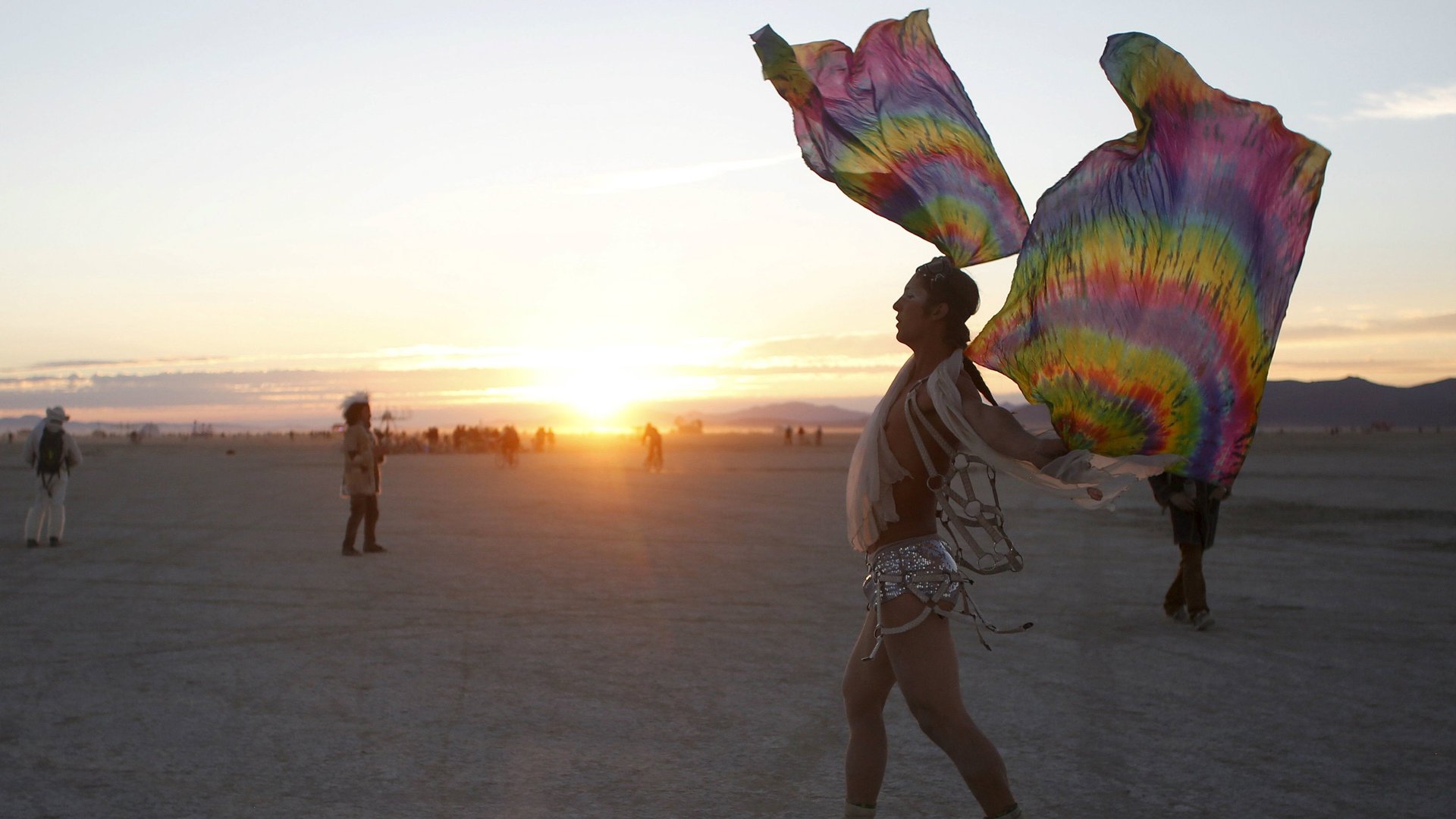Overworked America’s obsession with Burning Man is a cry for help
This week, tens of thousands of people are packing their tents and heading to the Nevada desert for Burning Man, a festival focused on “radical self expression.” Those attending build “Black Rock City” from scratch for the event, leaving no trace behind when they pack up after one week, and typically spend thousands on the ticket and supplies needed for the event. Once there, the festival runs on a gift economy and includes surreal art, orgies, and plenty of drugs.


This week, tens of thousands of people are packing their tents and heading to the Nevada desert for Burning Man, a festival focused on “radical self expression.” Those attending build “Black Rock City” from scratch for the event, leaving no trace behind when they pack up after one week, and typically spend thousands on the ticket and supplies needed for the event. Once there, the festival runs on a gift economy and includes surreal art, orgies, and plenty of drugs.
But while attendees include a healthy proportion of hippies, the festival is also incredibly popular among successful Silicon Valley types. As in, people whose day-to-day lives often include none of the spirituality, search for meaning, and hedonistic experiences they get for one week at Burning Man.
Daniel Yudkin, a social psychology PhD candidate at New York University, who has studied transformational experiences at Burning Man, says that for many “Burners”—as participants are known—the festival is the one chance to find authentic connections and self-expression.
“I think the fact that people invest so much of their own resources and time and energy to going to Burning Man suggests that there’s something missing, that there’s something Burning Man fulfills for them that they don’t get in day to day life,” he says.
In other words, if those so hungry for the Burning Man experience have a desk job and life that runs totally counter to the festival, doesn’t it suggest they need to re-evaluate some of their daily experiences?
Stephen Joseph, psychology professor at Nottingham University and author of a book on authenticity, says that much of modern life is artificial, and doesn’t give us a true chance to be ourselves.
“For many people, in day to day life our freedoms are quite restricted, sometimes very restricted, and our ability for self-expression is limited. People spend the day in workplaces where quite often we have to hold our tongues, not say what we really think, keep going, do what we need to do,” says Joseph. “It can be very tiring and exhausting living a life day to day that feels quite inauthentic and that doesn’t have that capacity for freedom and self-expression.”
Our innate desire to connect with others isn’t easily fulfilled. “We have a particular relationship with work colleagues, and quite often with our families, that doesn’t always allow us to be ourselves,” he says.
For some, a week-long festival like Burning Man can be the release they need. But for others, the urge to break free from the constraints of normal life and head to the festival can be similar to a midlife crisis, with an overwhelming need to challenge the inauthenticity.
“For many people, it’s more than a niggling sense of discomfort. It’s a real tension that they carry,” adds Joseph. “Those people need something more.”
Yudkin says his early research suggests that people who have transformational experiences at Burning Man do make changes to their life once the festival is over. But creating a life more in tune with the spirit of Burning Man can be a challenge.
“People are dealing with the realities they live in,” he says. Those realities “aren’t necessarily conducive to their most basic desires,” which is why Burning Man can provide a release.
Still, couldn’t some of the meaning and connections people make at the festival pervade their daily lives? Anthropologist Sarah Megan Heller, who works at UCLA Center for Health Services and Society and has studied adult play at Burning Man, points out that festival attendees do set up committees in various cities around the world after the festival is over. Play, she says, is identified as essential for children but is “under-emphasized in adulthood.”
After Burning Man, she says, many attendees do create more time for play, spirituality, and art. But in many societies, adult play isn’t always recognized as essential.
“It can be a painful cycle for some Burners of depression and ecstasy because they haven’t been able to create or connect with others outside of Burning Man,” she adds.